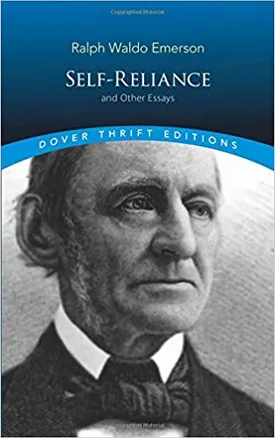Ralph Waldo Emerson
Ralph Waldo Emerson (1803–1882) was a leading figure of American Romanticism and Transcendentalism during the 19th century. He is perhaps best known for his educational lectures and essays, in which he expressed his views on truth, nature, and the individual self. He was a profound thinker who had an influence on the course of American literature and helped to create many inspiring works and movements in the decades after his death.
Ralph Waldo Emerson was born in Boston on May 25, 1803. He was the son of William Emerson, an influential minister and an avid supporter of the American Revolution. Young Ralph embraced his father’s ideas and became an independent thinker who was critical of organized religion. He attended Harvard College and, after receiving his degree in 1821, he began to explore his interests in philosophy and literature.
In 1825, Emerson was appointed to the Unitarian Church of Boston, where he became a prominent religious leader. His growing popularity as a preacher allowed him to deliver several influential speeches and sermons, such as his 1838 address to the Harvard Divinity School: “The Divinity of Nature”. In 1832, he resigned from his position in the church and moved to Concord, Massachusetts, where he became an essayist, lecturer, and poet. His works focused on themes of individual self-realization, freedom of thought, and the divinity of nature.
Emerson's first published work was an essay titled “Nature” (1836). This work contained many of his key ideas on transcendentalism, which he defined as “a faith that affirms the existence of an "immediate relation between man and the divine." He parted ways with organized religion in this essay and espoused a view of spiritualism which could be experienced through communion with nature. Other famous essays of Emerson include “Self-Reliance” (1841), “The Poet” (1844), and “Experience” (1844). In these works, he extolled virtues of independence, creativity, and imagination. Emerson's words were the inspiration for many of the reform movements of the 19th century, such as the Transcendental Club, which was founded in 1836.
In addition to his essays and lectures, Emerson was also a successful poet who published a number of volumes, including “The Sphinx” (1844) and “May-Day” (1867). His poetry is renowned for its simplicity, yet explores complex ideas on spirituality, morality, and beauty. His most famous work is “The Concord Hymn” (1837), which celebrates the first fight of the American Revolution. This poem has become a classic in American literature and is often quoted in graduation ceremonies and national holidays.
Emerson's contributions to American literature were highly influential, and his works still stand as a lasting inspiration for many readers. He was an outstanding essayist, philosopher, and poet whose writings extolled the virtues of the individual and celebrated the divine power of nature. His works will remain an integral part of American literature for generations to come.

